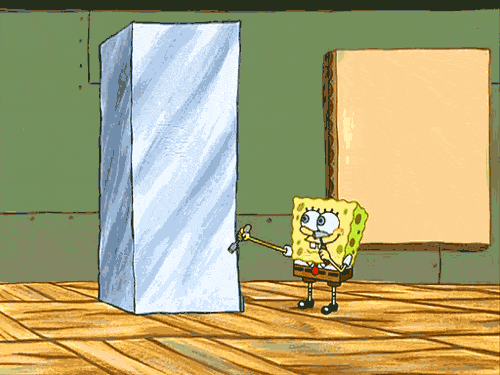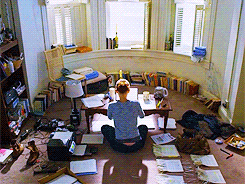Here's the thing about articles like these:
There is no one guide for all writers. Everyone has their own way of writing and editing a book. Anyone who says otherwise is certainly kidding themselves or trying to sell you something. Some are more organized and can plan out entire novels, while others start with a simple concept and start writing.
This is my typical process, and I write somewhere between those two extremes. What works for me might not work for you, but it sometimes helps to see someone else's process.
1. Conceptualize
This is the very first point at which you have an idea, hear something, or have a dream and you think to yourself "that would make a good story." It's important to have a good starting concept to carry your interest through all these steps, but characters also help.
2. Characterize

Time to start making people up. I do this before I do anything else in order to ensure that my own stories are character-centric rather than entirely plot-driven. While this might not make for a good page-turner (a la Dan Brown's "Da Vinci Code"), readers appreciate fully developed characters.
3. Develop the world
This is not to be skipped. Even the most interesting characters can only carry the story so far, and they should live in a developed and interesting world. Developing the world involves determining the climate, culture, society, political factors, and all else that goes into fleshing out your very own world that you made in your head.
This step comes after characterizing in this list when in actuality, I usually develop the characters with the world to ensure they make sense together. The world should logically produce a certain kind of character (think Westeros and the Lannisters versus a gentler world like the Shire and hobbits) and the characters should logically interact with that world that produced them.
4.Develop the background
Figure out what happened in your story world to set the point for the beginning of the book itself. This should be primarily character backstory and secondarily, history as it relates to the characters.
5. Come up with some sort of plot
Take the characters, story world, and background you just developed to try to make it into a somewhat-interesting and logical plot.
6. Determine where the story begins
People who write fantasy stories have a nasty habit of beginning with their main character waking up and going through their morning routine, as if that is the most interesting way to begin. It isn't. It's important to start off a fantasy novel with an interesting event. This might take several revisions to figure out, but you'll figure it out.
7. Try to figure out where it’s going
I start writing with only the roughest idea of where this story is going. Sometimes I don't figure out how it ends until halfway through writing the first draft, but it's still important to have the vaguest understanding of this.
8. Determine what happens in just the first chapter
Please, oh please do not write a prologue or start with outlining the history. If you ever want someone to read your book and to keep reading, this will make them close it right away. I have done this before and it was not interesting.
9. Write that chapter

This can take hours of staring at a blank screen or piece of paper, but do it!
10. Having written the first chapter, determine the next chapter
I plan as I go along so that each event makes sense. This way, I don't get overwhelmed with planning too much at once. Sometimes not even the next chapter goes according to my original plan, and that's fine.
11. Repeat the previous two steps until you understand the story better
This is probably the most arduous and soul-killing step. You'll wonder "why am I doing this to myself" and "can I even write decently." Yet, this is still the most important step. Don't edit, whatever you do, or you will get discouraged (or at least I do).
12. Figure out the climax and the end
There should be a point in your writing that you finally figure out the climactic event and where the story should end. It's a kind of "eureka" moment that propels you to see this draft through to the end.
13. Keep planning and then writing chapters until reaching the end
And then throw yourself a party. Most writers don't get to this point, or it might take them years to do so. Seriously, it's something to celebrate.
14. Print out the entire first draft, double-spaced
You might get a few weird looks from the UPS store people and it'll cost you, but to me it's worth it to be alone with my thoughts and the draft I need to edit.
15. Scribble on this printed copy to make revisions
Doing this can take me anywhere from 2 to 20 minutes per page and drive me a little crazy, but it's worth it to shed all the extra and awkward words I wrote in the first draft. This includes fact-checking your own world and making sure you didn't make up a word or use it wrong. I just finished this step in my novel and it was definitely a journey that usually drove me crazy.
16. Make edits on computer document

I write in Scrivener, which is literally the best app for writers. Just turn on some productive music, down some caffeinated beverages, and set about making your work into a polished draft.
17. Call it (more or less) finished
It's time for another party.
I say "more or less" because really, you need to stop editing at some point.
Bonus step:
If there is a several years' long gap in writing that first draft, read existing chapters and write summary notes to re-familiarize yourself with the story and to figure out where it should go next. It helps.



















